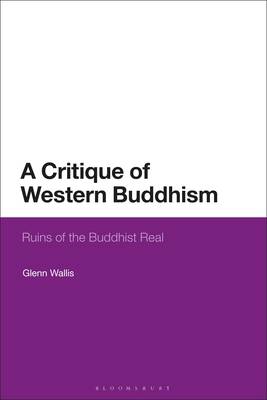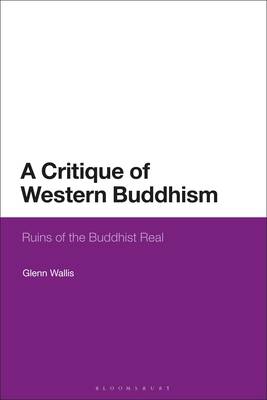
- Afhalen na 1 uur in een winkel met voorraad
- Gratis thuislevering in België vanaf € 30
- Ruim aanbod met 7 miljoen producten
- Afhalen na 1 uur in een winkel met voorraad
- Gratis thuislevering in België vanaf € 30
- Ruim aanbod met 7 miljoen producten
Omschrijving
What are we to make of Western Buddhism? This open access book argues that in aligning their tradition with the contemporary wellness industry, Western Buddhists evade the consequences of Buddhist thought. Glenn Wallis shows that with concepts such as vanishing, nihility, extinction, contingency, and no-self, Buddhism, like all potent systems of thought, articulates a notion of the "real." Raw, unflinching acceptance of this real is held by Buddhism to be at the very core of human "awakening." Yet these preeminent human truths are universally shored up against in contemporary Buddhist practice, contravening the very heart of Buddhism.
The author's critique of Western Buddhism is threefold. It is immanent, in emerging out of Buddhist thought but taking it beyond what it itself publicly concedes; negative, in employing the "democratizing" deconstructive methods of François Laruelle's non-philosophy; and re-descriptive, in applying Laruelle's concept of philofiction. Through applying resources of Continental philosophy to Western Buddhism, A Critique of Western Buddhism suggests a possible practice for our time, an "anthropotechnic", or religion transposed from its seductive, but misguiding, idealist haven. The ebook editions of this book are available open access under a CC BY-NC-ND 3.0 licence on bloomsburycollections.com. Open access was funded by Knowledge Unlatched.Specificaties
Betrokkenen
- Auteur(s):
- Uitgeverij:
Inhoud
- Aantal bladzijden:
- 232
- Taal:
- Engels
Eigenschappen
- Productcode (EAN):
- 9781350155213
- Verschijningsdatum:
- 19/03/2020
- Uitvoering:
- Paperback
- Formaat:
- Trade paperback (VS)
- Afmetingen:
- 156 mm x 234 mm
- Gewicht:
- 335 g

Alleen bij Standaard Boekhandel
Beoordelingen
We publiceren alleen reviews die voldoen aan de voorwaarden voor reviews. Bekijk onze voorwaarden voor reviews.







